Keywords: Pacific Solution
-
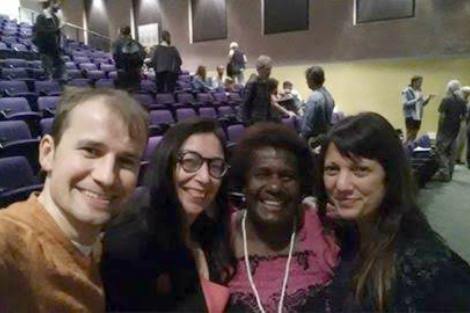
ENVIRONMENT
Ursula Rakova told how the sea that had been the friend of her people, was turning against them. It had crashed through and divided her island in two. Coconut palms were collapsing at the new shoreline. Food gardens were lost, as the soil was increasingly rendered infertile by salty tides that washed over them. The land that had been handed from grandmother to daughter, would bequeath no legacy to the granddaughters. The homeland of generations was disappearing before their eyes.
READ MORE 
-
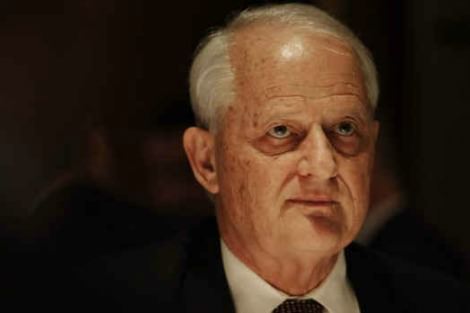
AUSTRALIA
- Justin Glyn
- 15 February 2016
7 Comments
If Phillip Ruddock's appointment as Australia's first special envoy to the United Nations on Human Rights is about demonstrating the worthlessness of current international human rights protection structures (and the consequent hollowness of their criticisms of Australia), it is a rather short sighted one. Appointing a person with a weak record of upholding human rights in the area where Australia itself is weakest sends the unmistakable signal that Australia is no longer committed to the human rights project.
READ MORE 
-
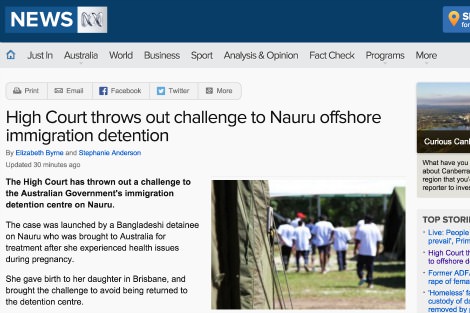
AUSTRALIA
- Frank Brennan
- 04 February 2016
24 Comments
Following Wednesday's High Court decision, the moral depravity of Australian funded offshore detention of asylum seekers, including children, is to continue. There is no joy to be found in our High Court applying a Constitution even more bereft of human rights protections than that of Nauru. It's time for our politicians to address the political and moral question: what purpose is actually served by sending this mum and her baby back to Nauru, when the boats have already stopped and will stay stop?
READ MORE 
-
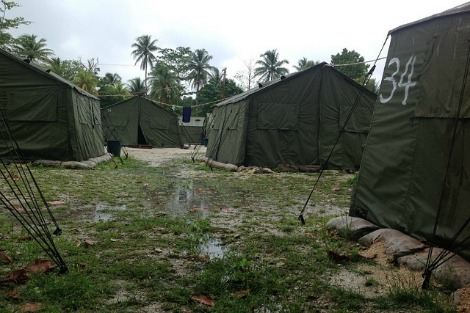
AUSTRALIA
- Frank Brennan
- 05 October 2015
28 Comments
Anyone hoping a Turnbull government will be more accommodating of boat people than an Abbott government will be sadly mistaken. But that is not the end of the matter. Now that the government has firmly closed the entry door to Australia, there is no warrant for maintaining the chamber of horrors in the Pacific which was set up as a 'circuit breaker' deterrent. Turnbull needs to admit that a purposeless chamber of horrors is not just harsh; it is cruel, and it is unAustralian.
READ MORE 
-

- Frank Brennan
- 18 September 2015
Pope Francis's concerns are not narrowly dogmatic or pedagogical but universally pastoral. He knows that millions of people, including erstwhile Catholics, are now suspicious of or not helped by notions of tradition, authority, ritual and community when it comes to their own spiritual growth which is now more individual and eclectic. He wants to step beyond the Church's perceived lack of authenticity and its moral focus on individual matters, more often than not, sexual. He thinks the world is in a mess particularly with the state of the planet — climate change, loss of biodiversity and water shortages, but also with the oppression of the poor whose life basics are not assured by the operation of the free market, and with the clutter and violence of lives which are cheated the opportunity for interior peace. He is going to great pains to demystify his office. He wants all people of good will to emulate him and to be both joyful and troubled as they wrestle with the probl
READ MORE
-

- Frank Brennan
- 01 September 2015
1 Comment
If you want to form government in Australia and if you want to lead the Australian people to be more generous, making more places available for refugees to resettle permanently in Australia, you first have to stop the boats. If you want to restore some equity to the means of choosing only some tens of thousands of refugees per annum for permanent residence in Australia from the tens of millions of people displaced in the world, you need to secure the borders. The untrendy truth is that not all asylum seekers have the right to enter Australia but that those who are in direct flight from persecution whether that be in Sri Lanka or Indonesia do, and that it is possible fairly readily (and even on the high seas) to draw a distinction between those in direct flight and those engaged in secondary movement understandably dissatisfied with the level of protection and the transparency of processing in transit countries such as Malaysia and Indonesia. The popular evil is that political
READ MORE
-

INTERNATIONAL
- Samuel Tyrer
- 06 August 2015
21 Comments
The Expert Panel on Asylum Seekers of 2012 said 'a regional cooperation and protection framework' should shape policymaking. Support for a regional solution also exists among academics and NGOs such as the Refugee Council of Australia. So what would such a framework look like? And when the time comes, will Australia be prepared to lead the way by increasing resettlement numbers?
READ MORE 
-
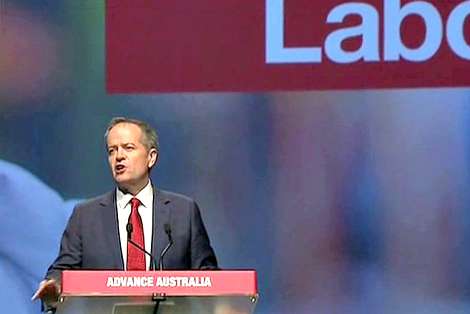
AUSTRALIA
- Kerry Murphy
- 28 July 2015
35 Comments
When refugee advocates criticise harsh policies such as boat turnbacks, they are confronted with claims that the measures are necessary for saving lives at sea. This justification has dominated the debate to the extent that any policy which further restricts refugee rights becomes justifiable on this ground. Imagine a proposal to ban cars because there were too many people killed and injured on the roads.
READ MORE 
-
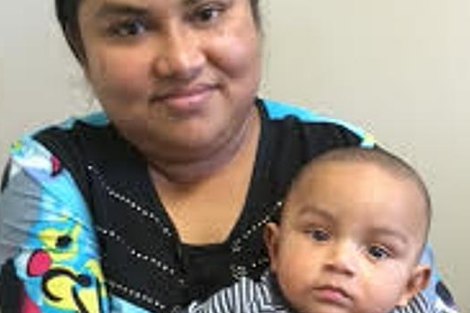
AUSTRALIA
- Kerry Murphy
- 21 October 2014
8 Comments
Successive Australian Governments have created fictions that aim to exclude asylum seekers. The latest example is the case of Baby Ferouz, whose protection visa application was refused in the Federal Circuit Court last week. Normally, a child born in Australia is considered to have the same visa as their parents. But Ferouz’s parents had no visa, so lawyers in Brisbane arranged for her to apply for a protection visa.
READ MORE 
-

AUSTRALIA
- Frank Brennan
- 22 September 2014
5 Comments
Considering my indebtedness to the two Aborigines who met [my family's ship arriving in Hervey Bay from Ireland] 151 years ago, I owe it to all my fellow Australians to agitate these issues of law, morality and politics here in Ireland so that back in Australia, the homeland which, in my religious tradition, was known as the Great South Land of the Holy Spirit.
READ MORE
-

AUSTRALIA
- Andra Jackson
- 04 August 2014
25 Comments
While the Federal Government continues to cast around for other Pacific nations and Cambodia to take in refugees held on Manus Island and Nauru, it has one ready solution right on its own doorstep. It is a place that has been calling out for help to counter its falling population and its prolonged economic crisis. It is an Australian territory and one that is already receiving Australia's financial support.
READ MORE 
-

AUSTRALIA
- Frank Brennan
- 23 July 2014
1 Comment
'Undoubtedly there are many challenges confronting our elected leaders in dealing with violent crime and with pathological sex offenders. But long-term sustainable solutions must be based on respect for judicial independence and for the role of the legal profession.' Frank Brennan addresses the Queensland Council for Civil Liberties at The Irish Club, 175 Elizabeth St, Brisbane 8 July 2014.
READ MORE